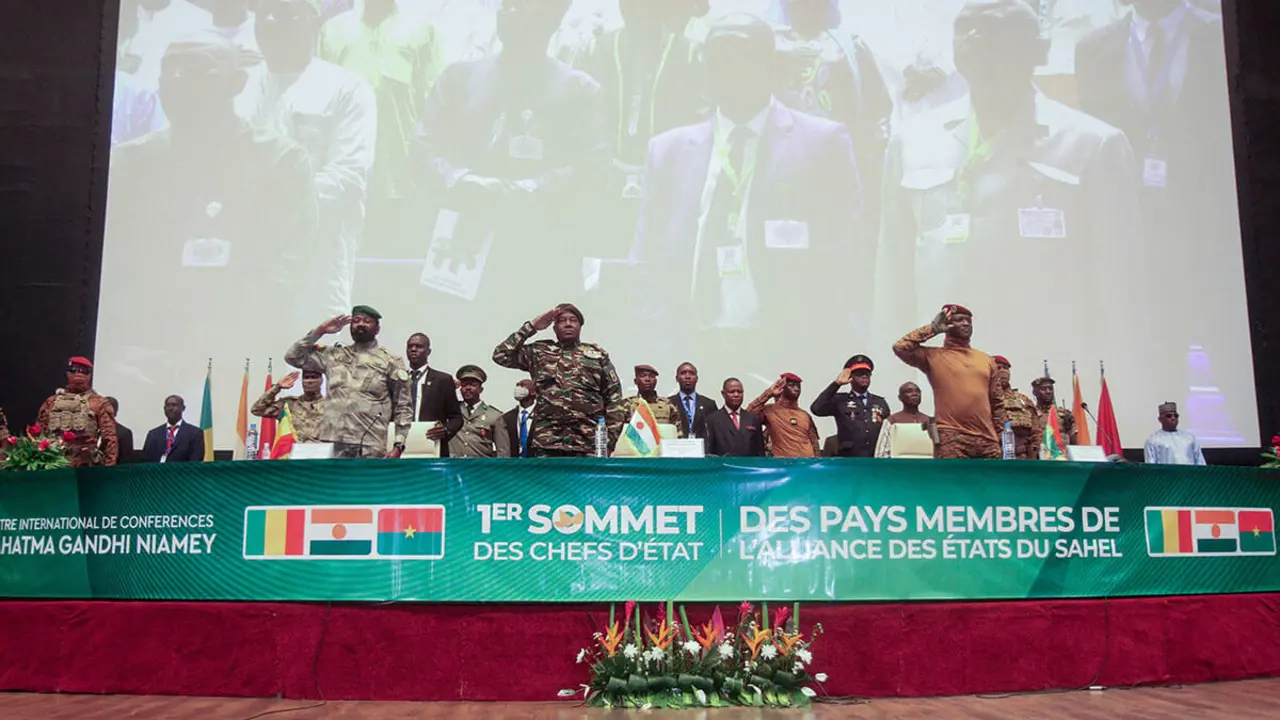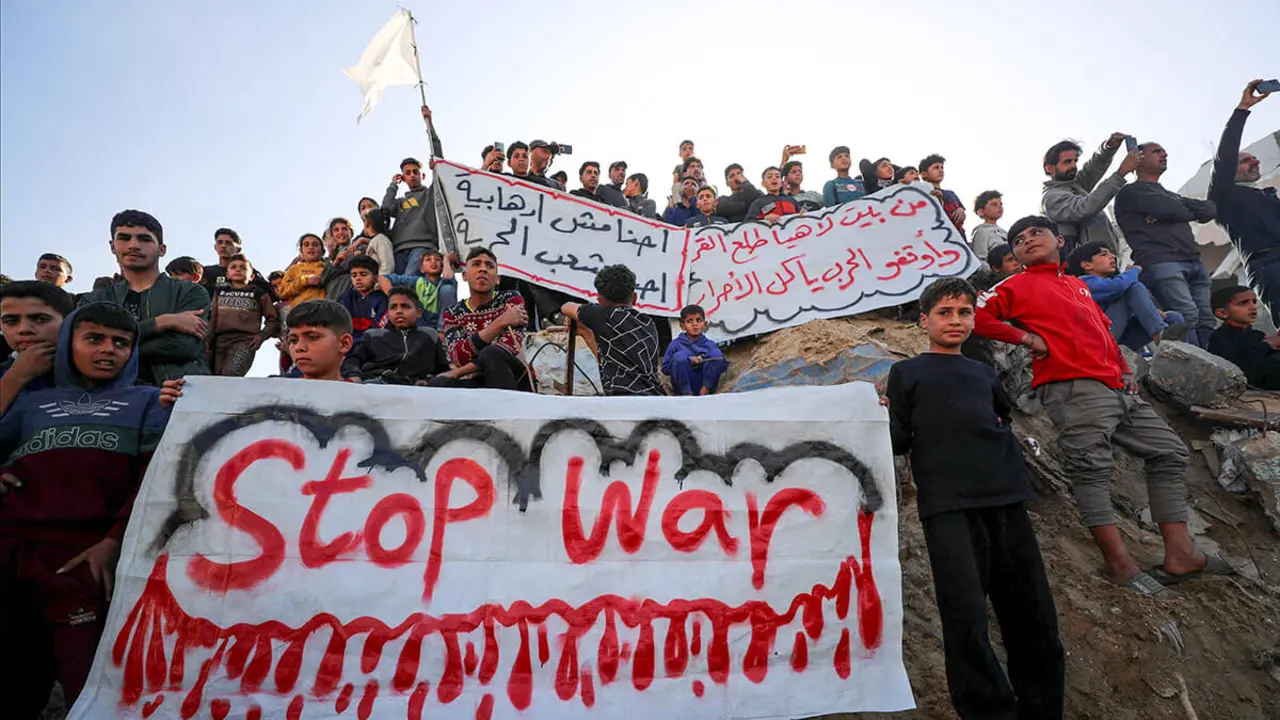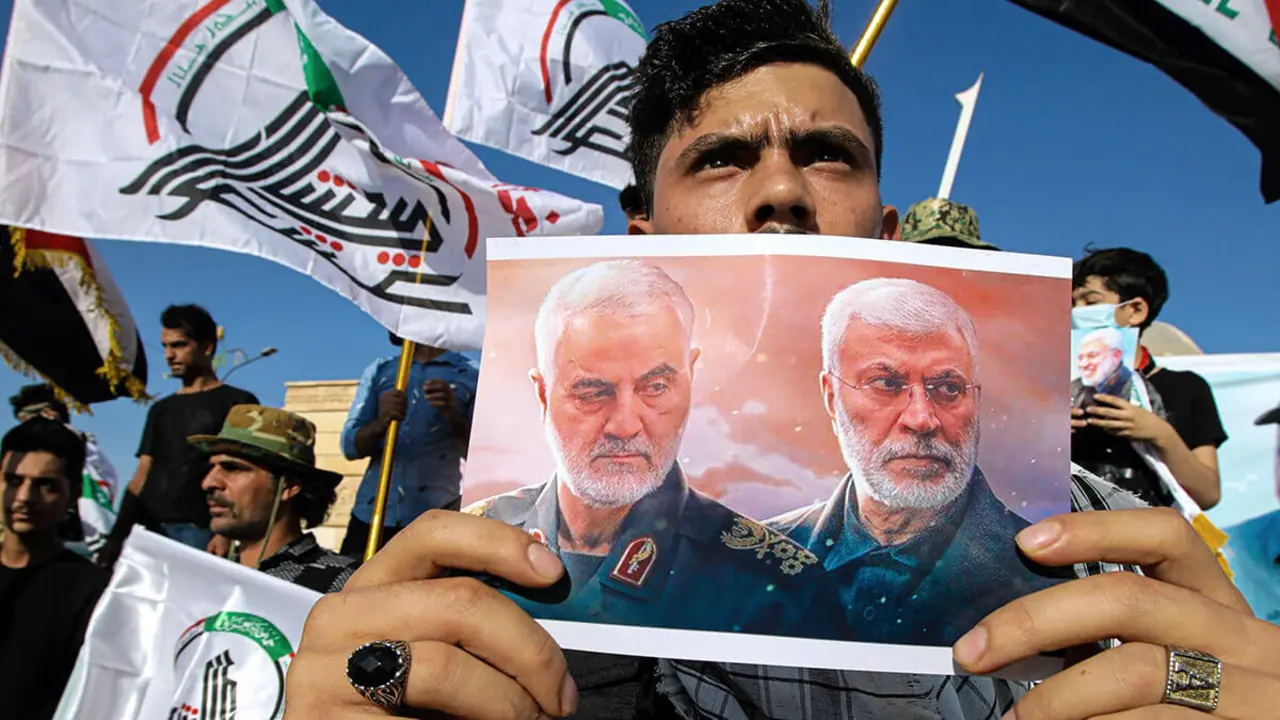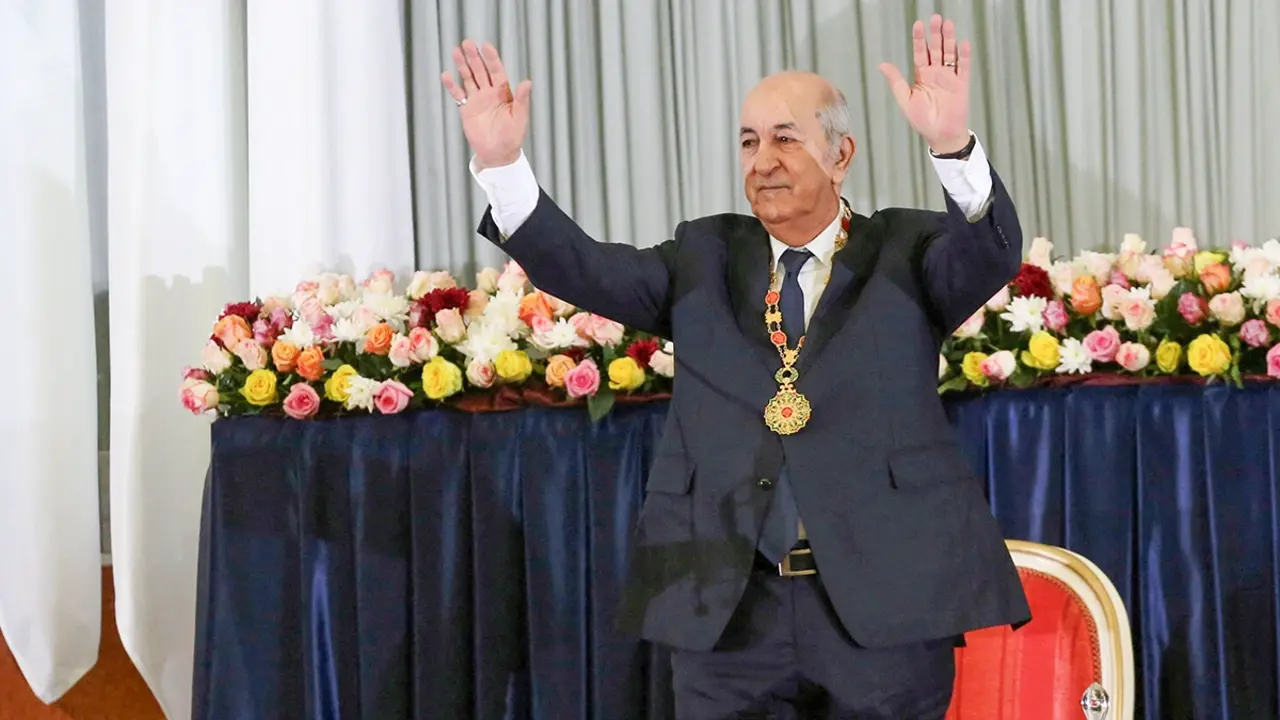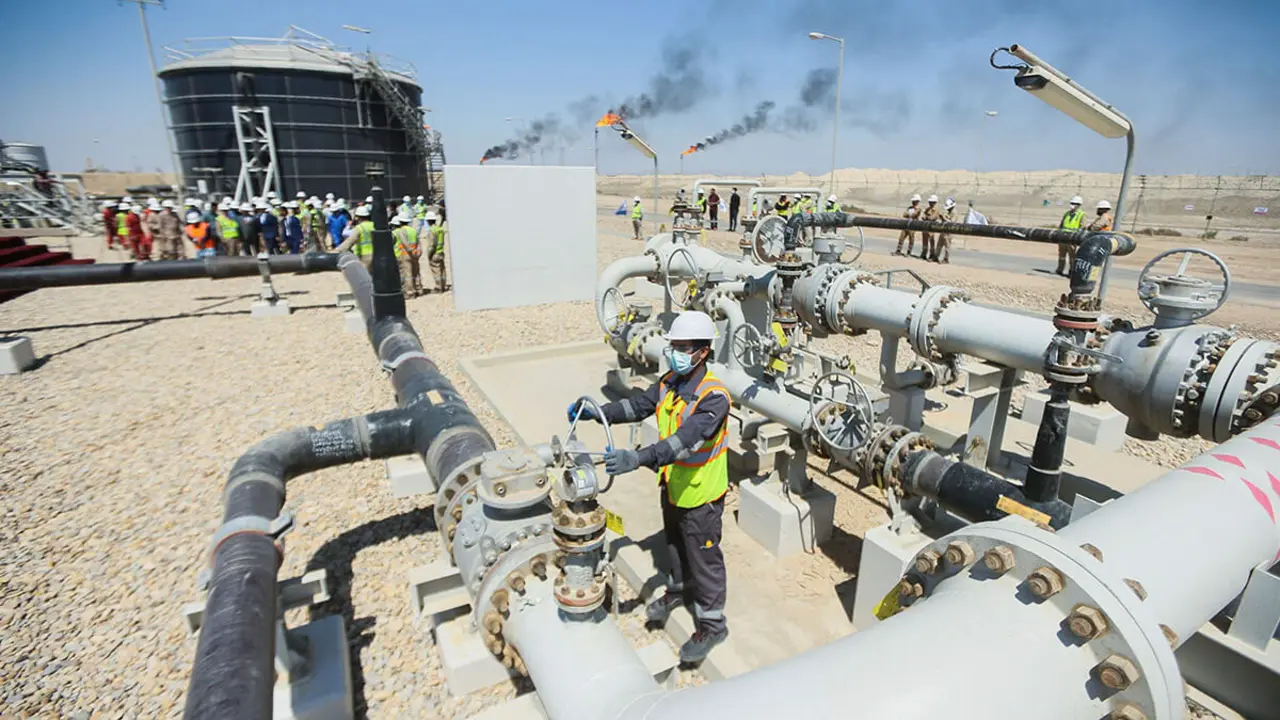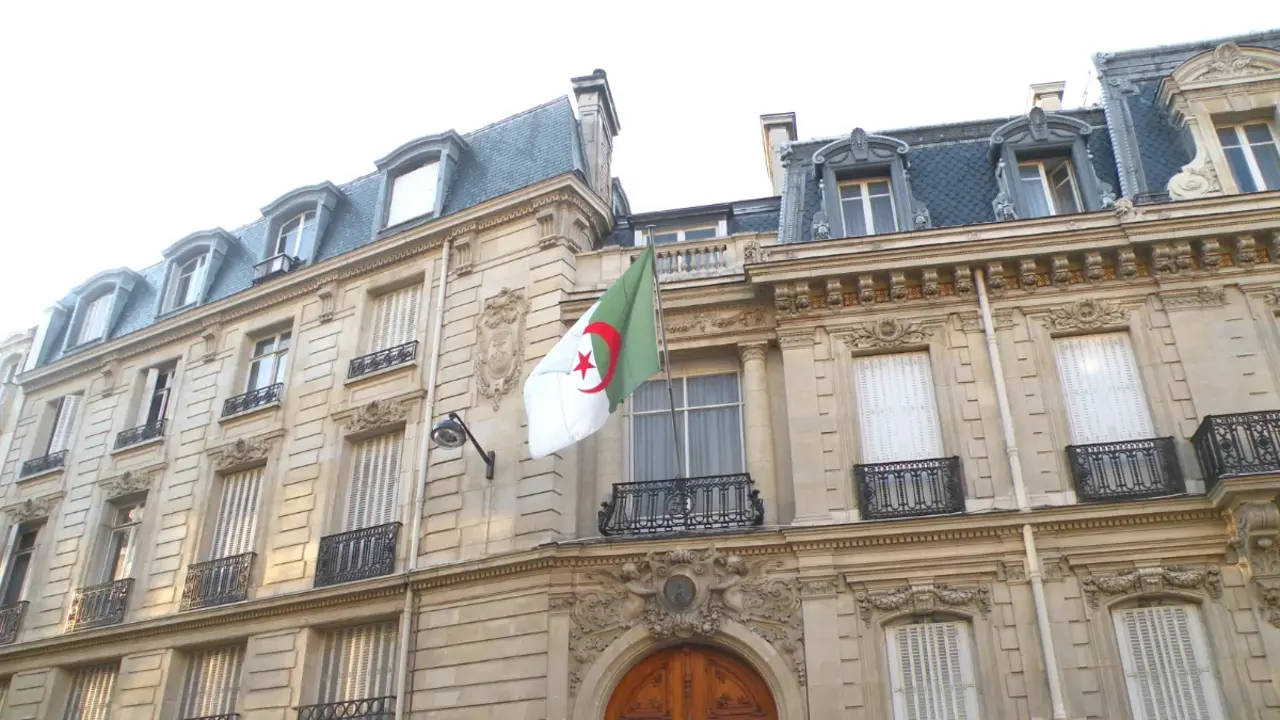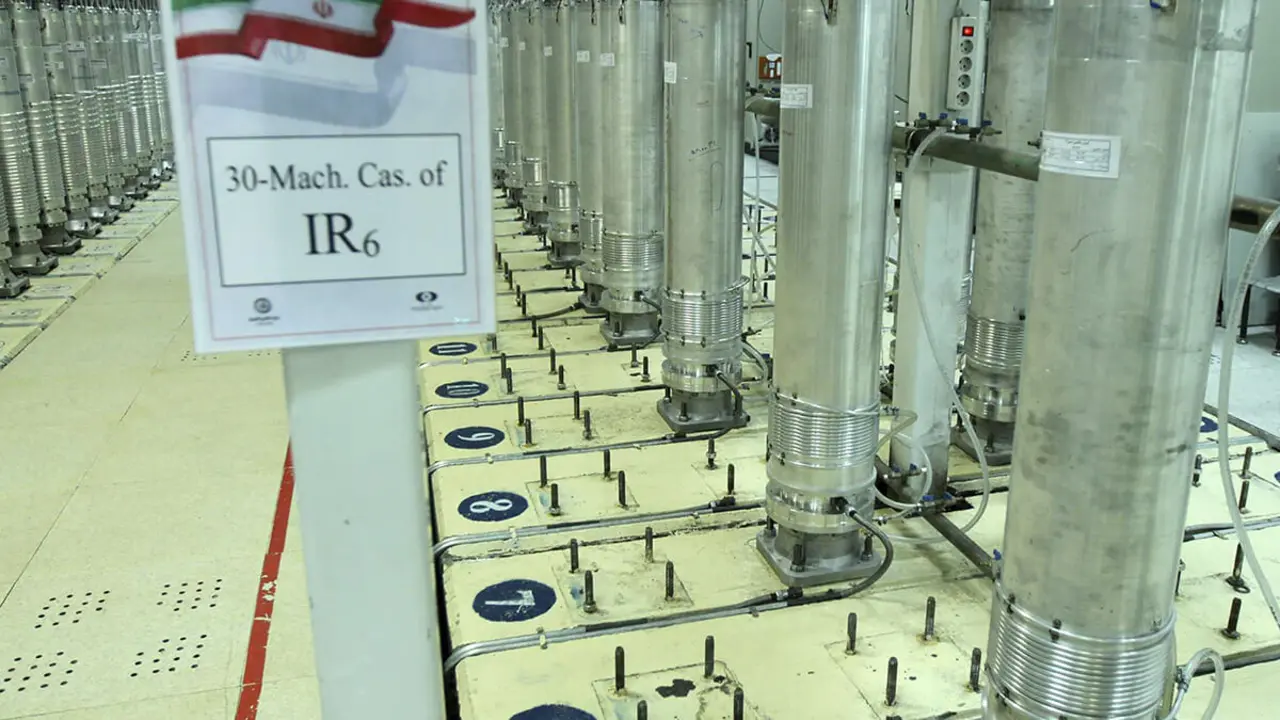Israel and Hamas, the battle for the narrative

Javier Fernández Arribas, director of the magazine Atalayar and the programme "De Cara al Mundo" on Onda Madrid, the international political expert and analyst Marta Isidoro and Pedro González, founder of Euronews and contributor to Atalayar, talked and debated on the programme "De Cara al Mundo" on Onda Madrid about the ongoing war between Israel and Hamas since the terrorist group carried out an attack on Israeli territory on 7 October.
Marta González Isidoro, expert, international analyst, you who know Israel and the whole situation in the region very well, know that the target is not only Hamas, but that the planning that is being carried out goes more against the Iranian al-Quds brigades that are established in Gaza, in the West Bank, Lebanon, Syria, etc. That is why there is a decision in the accumulation of forces that have been registered, not only by Israel, but by the United States and other countries, that Iran's responsibility in backing the terrorist action of 7 October, of an absolutely incredible brutality, and an exhibitionism of unacceptable dimensions from any point of view; something that must have a response and settle once and for all the influence of the regime of the ayatollahs in the region. Do you agree? Or perhaps, as Prime Minister Netanyahu says, "the war is going to be very long and we are anticipating stages".
Neither view, neither that of US Secretary of State Antony Blinken nor that of the Israeli Prime Minister, is incompatible. The Gaza war is going to be long and it is a proxy war. Iran sought political opportunity through Hamas, on the one hand, because it had to break the Abraham Accords and the whole process of reconciliation of the Arab-Sunni world with Israel, and it saw that the moment of internal polarisation in Israel provided an unbeatable scenario.
Hamas is an Islamist movement that has an agenda that coincides with that of Iran, but it has its own agenda of Islamisation, not only of what they understand to be the recovery of historic Palestine, which implies the destruction of the State of Israel as it exists, and that for Israel is a red line because it means that they are fighting for their survival.
Israel is used to having more or less controlled episodes of violence over the years. It was thought that Hamas was under control, and hence Israel's problem at the moment, Israeli society, which does not know whether to hold the government accountable so that it falls or to continue with a unity government precisely because it is not the time. We are seeing troop concentrations, not only from Israel and in the Gaza area, but also concentrations of Syrian, Lebanese, Iranian, Iraqi and Afghan troops on the border of northern Israel and southern Syria, which are very worrying.

Nasrallah has launched the usual proclamations promising martyrdom and war. All for Israel at a time of complication. Israel must limit its response, Israel's right of self-defence is absolutely unquestionable, but it is being undermined by the images of the children after the bombings because the image of those bombed children is badly damaged, and it is changing, although memory is often fragile. We have to remember the aggression that Israel suffered, the civilians of Israel, on 7 October, the barbarities that were committed, which makes it difficult to temper the Israeli response.
It is very complicated because Israel is in a dilemma at the moment, it is true that it is bound by international law and its army is very neat when it comes to launching attacks that are not proportional. Here we have to take into account what proportionality really is. Proportionality does not mean doing what they have done to me, that is to say, if they have raped 3,000 women, the army is not going to go in and rape 3,000 women. Proportionality is something else. If there are 5 Hamas terrorists in a hospital where civilians, women and children are used as human shields, and that hospital or that building is a target, the Israeli army, the Israeli Government has to abort the launching of a missile against that building because the proportionality is that it is not worth killing 5 terrorists if 100 civilians die.

When Israel is going to bomb a building, it is aware that Hamas is using civilians as human shields, as has been demonstrated in many places, but Israel warns people to evacuate the building before attacking.
Of course, Israel is giving warning, so the line between compliance with international law and non-compliance is still fragile, but Israel is complying with it. The problem is that Israel is facing a terrorist group that is very clear that its civilians are military targets as well. You have to listen and read their own leaders saying that they are a nation of martyrs, that it doesn't matter how many civilians die because they are martyrs and that they are a nation of martyrs and that they are fulfilling the objective.
The focus is on the Hamas dictatorship, aided by outside elements, little is said about this and I understand that it will be said in due course. When they carried out the barbarity of 7 October, they were fully aware that Israel's response was going to be what it is, so if you provoke this attack and if you know what the consequences are going to be, you also have a direct responsibility, especially in a group like Hamas. There have been no elections in Palestine since 2006. There were elections in 2006, where the current leader of Hamas, Ismael Haniye, was vice president with Mahmoud Abbas, the current president of the Palestinian National Authority, but a year later there was the rebellion and Hamas shot the Al-Fatah people out of Gaza and took power in Gaza, full stop. How is that "one vote, one man one vote, one vote, one time"? There have been no more elections in Gaza or in the West Bank, because every time there was a chance, every time there was a confrontation with Israel, there was a response and the conditions were no longer there, that is, the Hamas dictatorship is also being suffered by the Palestinians, because the living conditions in Gaza, before this whole serious crisis, were very difficult, very precarious conditions. On 30 July there were demonstrations in Gaza against Hamas because of the power cuts, the lack of food and medicine, people are fed up with the Hamas dictatorship, but now we may think that Hamas's action against Israel was also a way of escaping to stay in power in Gaza, even if it is a crushed Gaza.
We are dealing with a group that is not only terrorist, it is an actor with a political position, a military position and that controls the will of the population whose daily life it is supposed to manage. But it is not the only organisation, Gaza is collapsed with organisations. In fact, the problem Israel has right now in finding its civilians, its hostages, is that not all of them are in the hands of Hamas. Many hostages are distributed among the other jihadist organisations, Islamic Jihad and others, but they are also being held in the homes of civilians, of civilians who are receiving compensation and a salary for holding them. You have to remember that when the Ezedin Al-Qasam brigades entered Israel in such a violent way on the 7th of October, they were followed by hundreds and thousands of civilians, civilian citizens who went into this orgy of violence together with the Al-Qasam brigades, that documents have been found in which it is explained very precisely what the objective is. In fact, they had a manual with them explaining how they were going to proceed, just like the ISIS terrorists, exactly the same.

Is Israel prepared for a war of these dimensions? Did you remember the division, the polarisation that Israeli society was and is experiencing because of Netanyahu's judicial reform, which has provoked many protests? That polarisation, that weakness, that dependence on the ultra-Orthodox and then the economic, military and political capacity of Israel is sufficient right now to face this challenge.
It would be very adventurous to say that Israel is ready and very optimistic. Israel is a very small country, it has 9 million people, it has about 600,000 reservists, mostly stationed in Gaza, about 400,000 in Gaza. The north is on fire, there are 150,000 people who are displaced from the north and from the towns in the south. Economically, Israel can't afford a long war, but from a military point of view it can't either because it has no troops, there are very few of them. It is true that it has a technological capacity that works in its favour and it is trying to block the entrances and exits of the shafts, of the bunkers, precisely in order to collapse the Hamas militants inside the tunnels. But it does not have the military capacity to engage in a long war, let alone a guerrilla war inside the city.
Pedro González, journalist, founder of Euronews and the 24-hour channel, contributor to the magazine Atalayar. To continue what we were discussing with Marta González Isidoro, the support of the United States for Israel is fundamental at this time.
It is really decisive and naturally the concentration of military forces, and above all the huge naval deployment that the United States has made, proves that not only have they not just gone for a stroll in that part of the world, but that their objectives are probably a little bigger, even without ruling out a direct confrontation with Iran. Iran has not yet said its last word. The war currently being waged is between Israel and proxies of Iran, such as Hamas and Hezbollah. That is what is unpredictable, how far this situation will be forced.
US civilian and military intelligence has enough information to foresee or have the intuition that Iran may not simply stop at mere resistance through these proxy forces it has under its control. Of course, this naval and military deployment is proof of that. In fact, among these forces, which are extremely important, immense, there is a good contingent of F-18 aircraft that not even the United States has provided to Israel, and which are absolutely decisive aircraft in the event of an open war with Iran.

Here we should consider whether the objective is to put an end to the deployment of the al-Quds brigades, the international brigades of the Iranian Revolutionary Guards, which condition so much the life of these countries and the politics and stability of these countries.
In political and military analysis, the feeling that if the head of the snake is not truly cut off, it will continue to reproduce itself and, in short, every certain period of time, every certain number of years, we will have an episode that is more or less serious than the previous one, but naturally with unforeseeable consequences and above all that interrupts certain processes, weighs heavily on the political and military analysis. This is one of the main controversies at the moment. The Abraham Accords, which, of course, would be a path to normalisation between the Arab countries and Israel, and which, of course, was a path to prosperity recognised by all the signatories, are obviously at a standstill right now, no matter how much they are said. The last one, well, there has been one country that has suspended it, one of the first signatories, which is the Emirate of Bahrain, but there are also other Arab countries that were concluding them, that were negotiating and that in some way were benefiting from these possibilities, and obviously they are facing pressure from public opinion and sufficiently strong popular pressure to put these agreements on stand-by, and naturally this means a halt in development.
This in a very serious international context because we must not forget the famous threat in the Far East and what is always hanging over us, the possibility of China, Taiwan, etc., which could be the final spark that ignites this conflict of absolutely gigantic proportions, which in some way the United States and its allies and specifically Israel, I believe, are considering, and in some way. They are trying to eliminate this flank once and for all. I don't know if it will be possible or not, but I certainly hope that this time they don't reach an agreement easily so that the hydra renews those heads and in a short time we will have another situation equal to or worse than the one we are suffering right now or contemplating.
Yes, because the Abraham Accords, Marta, were working and working very well because the Abraham Accords, the understanding between Arabs and Israelis, was not only from a political and security point of view, but also applied to all sectors of society, the pharmaceutical, research, banking and social sectors, and the agreements and exchanges were taking place quickly and efficiently and above all with very positive repercussions for everyone, including the Arab Emirates and Bahrain, but in Morocco this is developing in a particular way. However, at the popular level, the issue of the bombers is creating a rejection of all this. I wanted to raise the role of Saudi Arabia, because Iran had just regained relations with Saudi Arabia and launched this attack on Israel just as the Kingdom and Israel were about to establish relations. What role can Saudi Arabia play right now, as one of the regional powers to be reckoned with?
That is the key question. The opportunity for aggression came to thwart the process you have been talking about. Saudi Arabia's role at the moment is a delicate one, because it has a public opinion that is against recognition with Israel, but it has a ruling political elite that is in favour of ending the presence of Iran's proxies in the region, especially because it has the Houthis very close to it and they put a commitment on it. The Houthis have already launched three missiles that have been intercepted in the direction of Israel, and if one of them falls on Saudi territory it puts him in the position of entering into direct war with Iran at a time when he had once again established diplomatic relations. Saudi intelligence is going to support the US and Israel in putting an end to Hamas and the presence of proxies in the region and will enter into negotiations with Iran through its representatives in Syria along with the United Arab Emirates, because Syria is in a very delicate moment.
It is true that President Bashar al-Assad cannot tell Iran - which is his sponsor - not to use its territory, nor its army, which has mobilised it, but it is true that both Saudi Arabia and the Emirates are pumping a lot of money into Syria, making Saudi Arabia's position to negotiate an agreement with Syria to be a mediator with Iran.

We should not forget Putin's Russia. If there is anyone who is interested in this very serious crisis and this whole situation, it is Putin. It will soon be known whether some of the videos we have seen from 7 October definitively confirm external involvement in this aggression. But there is no doubt that Russia also has a role to play, because in Syria it played and still plays a decisive role and can tip the balance to one side or the other.
It is one of the major beneficiaries of the situation that has arisen in the Middle East. This is absolutely accepted. Moreover, he took advantage of the situation in which the focus is on Israel and Gaza to launch the biggest offensive again against Ukrainian troops. Not only has it stopped the counter-offensive, but it is pounding more than ever the cities and targets it had set out to hit. Russia is not a superpower or a power to be underestimated at all. Of course it has far greater strength and influence than I had assumed.
We are even talking about the reconstitution of the Wagner brigades. To carry out missions that are basically under the Kremlin's control. Whatever may be said, they can of course operate anywhere and attack Western interests in particular. In short, several fronts are being forged on which the West is fighting.
Right now we are facing a very important battle, which is the famous battle of the narrative. At the moment the battle of the narrative is taking hold and the proof of this is the tremendous debate in the United States.
Especially in the universities, where there is tremendous polarisation, in France too, and even in Germany. In Austria the swastikas have reappeared and again there are even calls for the removal of protection for Jewish institutions.
It is a tremendous debate, and of course the West is also fully involved in this amalgamation. The battle of the narrative is truly decisive. Every day I receive information about the tremendous efforts of Israeli institutions to provide truthful, verified information, etc. But at the same time I am receiving a lot of images and little sketches in which not only their point of view on the consequences of certain bombings, but also the behaviour of settlers in the West Bank, of Israeli settlers, behaviour that could hypothetically be tricked because sometimes it is not true of Israeli families and Israeli social groups that mock the Palestinians. There are a number of things that are naturally very difficult to disentangle, but there is no doubt, at least in my opinion, that this is influencing a narrative that at the moment I think the West is not winning.


